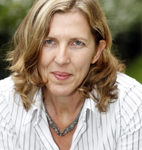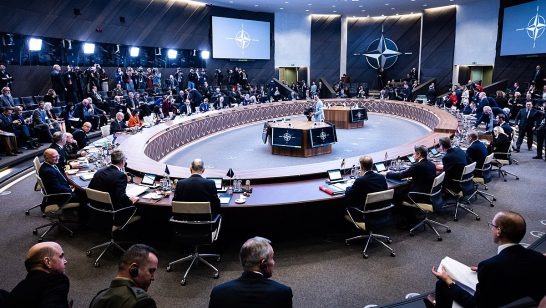
The message was more than clear. Responding to calls by partners and allies to play a greater role in foreign policy (and publicly taking up a debate that had been quietly simmering for almost two years), Germany’s President Joachim Gauck declared in his opening speech at this year’s Munich Security Conference that: ‘We cannot hope to be spared from the conflicts of this world. But if we contribute to solving them, we can take a hand at least in shaping the future. It is thus worth Germany’s while to invest properly in European cooperation and the global order.’ Both Foreign Minister Frank-Walter Steinmeier and newly appointed Defence Minister Ursula von der Leyen followed suit, saying that Germany must be ready for earlier, more decisive and more substantive engagement in the foreign and security policy sphere.
Much quicker than Germany’s foreign policy establishment had anticipated, Berlin’s newly ambitious foreign policy was put to a test when Ukraine’s President Victor Yanukovych was ousted from office after months long protests (not only) on Kiev’s Meidan and when Russia’s President Vladimir Putin in turn decided to invade Ukrainian territory on the Crimean peninsula. The question now of course is: Has Germany been up to the job so far?
Not at first sight. Germany, Russia’s most important trading partner and a country largely dependent on Russian gas, has been hesitant to apply harsh sanctions against Russia despite Putin’s flagrant violation of international law. Foreign Minister Steinmeier, seemingly in line with his Social Democratic Party’s tradition of Wandel durch Annaeherung (change through rapprochement) insisted that in times of crisis, ‘we have to talk more, not less’.
Chancellor Merkel has been frequently speaking to Vladimir Putin over the phone. Much to her dismay, her observation that Putin ‘lives in his own world’ has been leaked and since become the most quoted explanation for the Russian President’s behaviour. Needless to say that German companies, most famously the influential Ostausschuss der deutschen Wirtschaft(Committee on Eastern European Economic Relations), warned that the price to be paid if Germany applies sanctions might be too high. To some critics Germany once again seems to be an economic giant but a political dwarf that cares most about business, tries to be everybody’s darling and shows little resolve when the going gets tough.
On closer examination however, and perhaps being ‘forced into courage by Putin’s intransigence’, as GMF’s Constanze Stelzenmueller puts it, Germany is showing leadership – if leadership is defined by a consistent yet adaptable policy; a sober analysis of one’s own and the other side’s available means and resources; the formulation of clear goals; the willingness to pay a price for one’s actions; and the attempt to get or keep partners on board.
German leadership is – and can only be – leadership within and in accordance with its European partners from Lisbon to Riga, as Mrs. Merkel has recently put it – with an emphasis on Lisbon. – Why? The Baltics or Poland who have been active supporters of the EU’s Eastern Partnership and who are more than worried about Russia’s newly discovered urge to protect ethnic Russians in post-Soviet states, certainly don’t have to be convinced to show a determined European stance towards Russia including biting sanctions – even if their countries might pay an economic price. Southern EU members like Portugal or Spain do. They are still suffering from the Euro-crisis and they aren’t at all eager to potentially harm their chances of economic recovery. The deal Steinmeier and his French and Polish colleagues Laurent Fabius and Radek Sikorski negotiated in mid-February to end the standoff on Meidan might not have survived the dynamics of the 24 hours following its sugnature. But with France on board, seen by many as the representative of the Southern and Mediterranean countries, this sent a strong signal: The Ukrainian issue is not about Eastern Europe. It is about all of Europe. And it is that message that has to be brought home to all EU member states by Germany.
Taking that into consideration it is prudent to first seek to deescalate, to assess and reassess the situation and to turn up the heat slowly. Which is exactly what Berlin has been doing, not only over the past few weeks, but rather the past few months. Steinmeier, known to be the inventor of a modernisation partnership with Russia during his first term as foreign minister from 2005 to 2009, seemed to have been thoroughly disillusioned about Moscow’s willingness to modernise – which would have included far reaching economic and political reforms rather than seeking a Peter the Great-style technological modernisation only. ‘It is outrageous how Russia used the precarious economic situation in Ukraine to keep it from signing the EU-association agreement’ – Steinmeier said in his inauguration speech on December 2013. And he might have added: Putin not only did his best to keep Ukraine from leaving Russia’s sphere of influence and seeking her own path to modernisation, rule of law and prosperity – he also tried very hard to demonstrate that he is less interested in setting Russia on the path of reforms than on making Russia a counterforce to Western decadence. After all, Putin has reinstalled himself as President while downgrading Medvedev, introduced anti-gay and anti-NGO laws, put members of the Punk band Pussy Riot on trial, and, most important, slowly but surely replaced some more or less liberal minded oligarchs in his immediate environment with his hard-boiled comrades from the KGB. Even without having invaded Ukrainian territory, it was more than clear that a new German approach vis-a-vis Russia was desperately needed.
Germany’s long term strategic goal however hasn’t changed: It is in Germany’s, Europe’s, and generally in the West’s interest to help develop a more democratic, yet stable Russia. A Russia under the rule of law, rather than the rule of a handful of corrupt oligarchs and former KGB agents, a Russia that might develop her full economic potential rather than relying on natural resources only. It is equally clear that this goal can hardly be reached with the current government. Germany’s strategy therefore has to aim at long-term achievements, rather than short term gains only. No doubt, Russia’s flagrant violation of international law, the annexation of Crimea, as the Chancellor recently said in a meeting of her ruling Christian Democratic Party, cannot be accepted. Tougher sanctions like freezing accounts, an even more restrictive visa policy, and exclusion of Russia from the G8 group are certain to be put in place.
But let’s not fool ourselves: Those sanctions will not remove Russian troops from Ukrainian soil. Neither will NATO or any other Western power go to war over Ukraine. The Crimean Peninsula, for now, seems to be lost to Kiev. Sanctions however, might deter Russia from stirring up more trouble in neighbouring Moldova, Georgia or Azerbaijan.
Much more important than the short term is a determined long-term strategy. Putin is playing a geopolitical game 19th century style. Europe’s strategic goal – namely to integrate post-Soviet states (plus finally and hopefully Russia) – into the realm of democracy, market economy and rule of law, is Putin’s greatest fear. Nothing would undermine his ‘authoritarian project’ more than a democratic, prosperous Ukraine. And he only has two instruments to undermine just that outcome: Gas, namely European and German dependency on Russian natural sources on the one hand, and the power to say no to a stable Ukraine by keeping a simmering conflict, similar to the frozen conflicts over Abkhazia and South Ossetia, ongoing on Ukrainian territory and thereby preventing Ukraine from joining bodies like the EU and NATO on the other.
Germany and Europe on the other hand would have or could develop many more tools to reach their strategic goals.
First and foremost Europe – with Germany as the economically strongest power at its helm – can help to stabilize Ukraine economically. Just pouring money in might help to avoid some of the immediate problems but in the long term, Ukraine – with the assistance of a Troika like group – will have to be helped through a process of tough structural reforms that won’t be finished in a year or two. Just as a reminder: East Germany has enjoyed far greater political and economic help and still is lagging behind.
Instead of relying on good relations with the Kremlin (which definitely have soured over the last weeks) there has to be a determined and patient attempt to seek and establish contact with civil society in Russia. Putin loves to portray himself as the only force able to guarantee stability and wealth after the chaotic Yeltsin years. But he is not. Russian GDP is in decline, over the last years a Russian bureaucracy and new Middle Class got used to rising wages and quality vacations. If Putin can’t deliver his part of the deal – wealth in exchange for obedience – he quickly might have to face up to more protests. It is therfore crucial that we get a more informed picture about Russia’s political landscape. And it is precisely because Germany is insisting on ‘not isolating Russia’ that it would be easier for Berlin than any other country to uphold contacts with and to engage different political groups in Russian civil society.
Last, but definitely not least, Germany has to rethink its dependency on Russian natural resources. Germany’s Energiewende, its turn towards renewable energies, has a clearly geostrategic aspect. If successful, it would make Germany, and possibly other European countries as well, less dependent on difficult partners blessed (or perhaps rather cursed) with natural resources.
Is Germany taking a lead and is it ready to pay a price for a harsher stance on Russia? Yes, it is. It slowly but surely has been adapting and responding to Putin’s intransigence. If it sticks to its long term strategy, Berlin might really have the means to shape, rather than follow world events.
The opinions articulated above represent the views of the author(s), and do not necessarily reflect the position of the European Leadership Network or any of its members. The ELN’s aim is to encourage debates that will help develop Europe’s capacity to address the pressing foreign, defence, and security challenges of our time.


